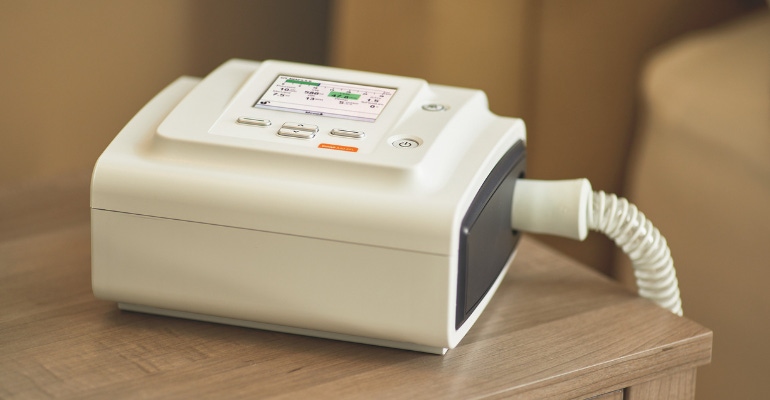Philips Reaches First Class-Action Settlement in Ventilator Lawsuit
The settlement covers only economic loss claims submitted through the class action. Other litigation is still ongoing.

After a nightmare few years filled with recall woes, lawsuits, and plummeting shares all stemming from its CPAP and BiPAP machines, ventilators, and other respiratory devices, Philips today announced it has reached a class-action settlement on economic loss claims related to the Respironics recalls.
The recalls began in earnest in 2021 when the company began its largest ever recall of its CPAP and BiPAP machines, including about 5.5 million devices in need of repair or replacement because the foam used to dampen the machines sound could degrade and emit small particles. These particles could release gas that may be toxic or carry cancer risk. Since the initial recall, the company saw its reworked machines from the first recall also included in their own Class I recall. Reworked respirators were also plagued with issues like the separation of the new silicone sound abatement foam — which replaced the foam used in 2021 — from the plastic backing which could block the air inlet and lower the inspiratory pressure and trace amounts of particulate matter that have been found in the air pathways of some reworked ventilators. Since 2021, Philips has seen other recalls of its CPAP and BiPAP machines, ventilators, and other respiratory devices.
The Respironics settlement covers only economic loss claims submitted through the class action. The hundreds of additional personal injury and wrongful death claims, as well as requests for medical monitoring, are still in litigation, according to the company.
The company said in its statement on the settlement that the final fiscal number awarded to plaintiffs may vary depending on the number of patients included, and what the court awards regarding professional fees relating to the resolution. Philips Respironics reported that it has already set aside €575 million ($615 million) from Q123 to cover the estimated costs for the final settlement.
The company, according to Reuters, will start by putting at least $479 million into a settlement fund and the number will increase as more recalled devices are returned. Plaintiff awards will range from about $55 to $1,552, plus another $100 for each device returned to Philips. There will be additional awards to reimburse the cost of replacement devices. Anything left over after those completed payments will then be distributed to eligible complaint filers as the settlement fund is non-reversionary.
The US multi-district litigation (MDL) which is assigned to the District Court for the Western District of Pennsylvania should receive the settlement paperwork from Philips later today, the company said. The settlement is then subject to court approval. Of note, Philips expressed in the statement that the settlement includes no admission of liability, wrongdoing or fault by the company and its affiliates. As of Sept. 5, the number of civil actions transferred to the MDL came in at 300.
Plaintiffs involved in the class-action will be able to file a claim on the settlements official website once it is court approved. Payments aren’t expected to begin until, at the earliest, Q124.
The settlement announcement comes after the company essentially had to step back from the respiratory space as it continued to deal with the reckoning from the many recalls, resulting in a 70% plunge in its market value. Philips also began 2023 announcing it would cut 6,000 jobs. Just a few months before that announcement, it had also laid off 4,000 jobs.
The company seems to be finally lifting itself back up, however, seeing its yearly outlook raised after beating consensus in its Q223. “Sales in 2Q23 jumped to $4.97 billion compared with $4.6 billion for the same period last year,” MD+DI’s Omar Ford reported at the time. “Adjusted EBITA increased to $501.7 million, or 10.1% of sales, compared to $239.2 million, or 5.2% of sales, in Q2 2022.”
While the good start to the year could give it an adjusted EBITA margin at the upper end of the high-single-digit range for the full year, Philips also reported an order intake decrease of 8% in the April-June period, which caused shares to drop by about 5%.
After reports of the settlement hit the press this morning, shares of PHG fell more than 1% to $21.16 during morning training on the NYSE.
About the Author(s)
You May Also Like




